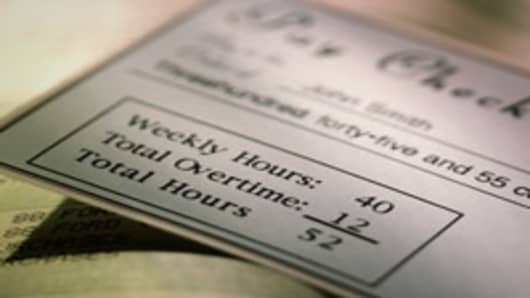“I think it’s very common, says Mitch Free, CEO of MFG.com, an online marketplace for manufacturers. “When I started MFG.com, I paid myself half what I was making previously as an employee for a major corporation. There were numerous times I couldn't even pay myself that.”
Cristi Cristich, had a similar experience. “Although it has been a quite a few years since I have totally missed a paycheck, during my first 10 years in business it was a pretty common occurrence,” says the CEO and founder of Cristek Interconnects, who let us in on how she used credit cards to make payroll.
“Most of the first year of Cristek I couldn’t take a salary," says Cristich, "so while paying employees and creditors out of the cash flow, I kept myself afloat by the credit card shell game. In 1985 I paid my Am Ex Green card off — 90 days past due — by taking an advance on a new Platinum Card credit line they had mailed me. That was back in the days when the computers did not all talk to each other in real time on credit.”
Joseph Dutra, CEO and founder of Kimmie Candy Company says he is still not on the payroll. “I’ll have to talk to the boss about that,” he jokes.
Dutra explains that when he launched the business 10 years ago, it was slow to grow, and some staff did wait for paychecks. He borrowed money from friends and family while he nurtured another venture. That business, an agricultural consulting firm called Westec, has thrived and pays him a salary that allows him to forgo one from Kimmie Candy.
Having multiple sources of income seems to be a common way for entrepreneurs to get by. Beezer Molton recalls living in a "dumpy $175 month apartment" and frequently going without a paycheck after founding Half Moon Outfitters two decades ago. As recently as 2009, he stopped paying himself again, he says, "just to make sure that corporate overhead was as low and debt was being repaid as quickly as possible." Rental properties he'd invested in enabled him to live without tapping savings. "Fortunately those properties remained occupied through the downturn," Molton says.
For many business owners, maintaining good credit is more important than getting paid, says David Greenspon, president and owner of Competitive Edge Advertising Specialty Manufacturing. “Long hours, low pay, if any, and unstable finances were the norm," he says of beginning his business nearly 30 years ago. "I paid my vendors first, in order to achieve and maintain credit," he says. That way, says Greenspon, "I could avoid both SBA and bank financing, which never were friendly to startups. I never missed paying any employee or vendor, but this was because I was always the last in line for payment.”
Starting a business is risky, notes Ronald Barnes, chairman of Midwest BankCentre, who has worked with many small business owners. “In the end, the buck stops with that business owner" says Barnes. "Entrepreneurs deserve to make the big bucks when they succeed because they certainly pay a significant price both emotionally and from a capital at risk perspective when the business fails.”
That risk-reward dynamic may be the opposite of what happens in corporate America. But most of these small business owners wouldn't trade places with the CEOs of major corporations — even if it's tough to convince the boss they deserve a raise.
Email us at SmallBiz@cnbc.com and follow us on Twitter@SmallBizCNBC.


